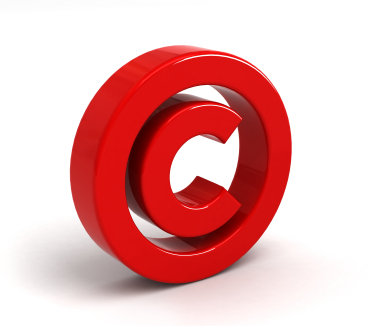 “Can’t I quote someone if I just give them credit?” This is an often-asked question from authors. I think a lot of confusion comes from past experiences in academic writing. When you write a research paper in school it is expected that you will quote other people’s ideas and the requirement is to give credit in either a footnote or bibliography. It is completely different when you use those same quotes in a commercial endeavor. And if you intend to sell your book, it is most definitely a commercial endeavor.
“Can’t I quote someone if I just give them credit?” This is an often-asked question from authors. I think a lot of confusion comes from past experiences in academic writing. When you write a research paper in school it is expected that you will quote other people’s ideas and the requirement is to give credit in either a footnote or bibliography. It is completely different when you use those same quotes in a commercial endeavor. And if you intend to sell your book, it is most definitely a commercial endeavor.
I wish I could give you a clear checklist that would tell you whether or not any given material is protected by copyright and requires permission. Some things are more straightforward than others but, unfortunately, there is no clear black and white when it comes to copyright law. I recently listened to a teleseminar presented by a couple of attorneys who specialize in Intellectual Property Law in the hopes of learning the magic formula. My major take-away from the call was that you can expect to spend a great deal of money in attorney fees if you are challenged on copyright infringement and won’t really know what to expect until the verdict is rendered! Given that uncertainty, the best advice is to steer clear of including any materials that you don’t have specific permission to use.
There are several things you should do to assure you have taken all the necessary steps to obtain permission.
- Start early. Don’t wait until the end of your writing process to begin the request for permission. As soon as you decide you would like to use material that is not originally yours you should start the process to obtain permission. Sometimes the path to find the true owner of the copyright is not as simple as it may seem. It is quite perilous to move into production if you haven’t acquired all the required permissions so waiting to hear back could stall the release of your book.
- Consider a “Plan B” as backup. It is not a guarantee that you will be granted permission to use the material. Sometimes the answer is a flat no. Other times, permissions are offered for a fee and you may decide that the fee is outside your budget. It is good to start from the beginning with an idea of how you might convey the concept without the use of the copyrighted materials.
- Don’t assume that you can just paraphrase to get around having permission. If you change a word here and there or the order of a sentence or two won’t make it original material. If you take a long piece and summarize it in an original paragraph you won’t have to get permission.
- Get it in writing. You may have a relationship with some of the people you need permission from, either colleagues or friends. The request for permission may be quite informal and the response could be a simple “Sure! I’d love to be included in your book.” It is important that you have documented permission from every copyright holder — you never know when a relationship could sour or the copyright could be passed on to another person via the sale of a business that includes intellectual property or inheritance.
- Have a clear system in place. This is an area that an Author’s Virtual Assistant can definitely help. We maintain a spreadsheet of all permissions needed and follow up with the owners until we have the documentation in hand. Just remember that having permission and having it documented will do you no good if you are unable to produce the documentation if needed.
- Just because the original author is dead doesn’t mean you don’t need permission. The copyright lasts until the author’s death + 70 years — that’s a long time! Tracking down copyright owners can sometimes be an interesting venture into genealogy.
- Don’t assume that something that is common is not copyrighted. My favorite example of this–the song “Happy Birthday” is still protected by copyright. The next time you hear it sung in a movie, watch for the credits and you’ll see the original authors, Mildred and Patty Hill credited and you can be assured the producer paid a royalty to use it. That’s why you will hear a different ditty usually sung at a restaurant when the waiters come out to embarrass the birthday honoree with cake and song. Technically, if they sing that traditional version they owe the copyright holder a royalty.
